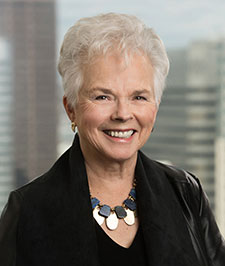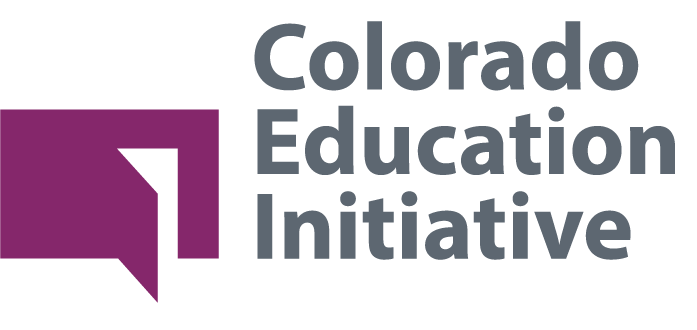Q & A with Colorado Leader, Educator Dr. Cile Chavez
January 22, 2021
 The newly-announced Dr. Cile Chavez Fellowship has been created to inspire diverse, under-represented education leaders to join the Rural Superintendent Academy and bring their unique perspectives to the helm of Colorado districts. In this Q & A, Dr. Chavez, a retired superintendent, education thought leader, and Boettcher Foundation trustee, shares her thoughts about school district leadership.
The newly-announced Dr. Cile Chavez Fellowship has been created to inspire diverse, under-represented education leaders to join the Rural Superintendent Academy and bring their unique perspectives to the helm of Colorado districts. In this Q & A, Dr. Chavez, a retired superintendent, education thought leader, and Boettcher Foundation trustee, shares her thoughts about school district leadership.
From your perspective, what are some demands of superintendents that fall outside of the traditional job description?
Not all demands of the superintendent are articulated in a position description. Certainly they may vary according to the size of the district and expectations of the Board of Education. There is no way to know all the events, circumstances and new realities that can impact the role of the superintendent. I am thinking of COVID-19 and all the ramifications. Additionally, tragedies happen in schools and community that become a priority. While one cannot predict crisis situations, the demand is that the superintendent provide leadership. And when possible, the job calls for anticipating, illuminating, and responding to problems, conflict situations, and yes, opportunities.
This brings to mind the significance of the superintendent establishing and fostering relationships throughout the district and community. The scope and depth of those relationships may vary with the size of the district. Regardless, investment in relationships should remain a constant value.
I don’t know how typical it is to have a position description state the expectation of professional development for the superintendent. I have great appreciation for the volume, intensity and complexity that rural superintendents face as they carry out their work. How do they have benefit of professional development? They might feel they don’t have the time, resources or opportunity.
What are some of the highlights – and most challenging events – you recall from your tenure as a superintendent?
Both highlights and challenging events were abundant and rich in meaning, significance, and in opportunity. I would say one of the biggest challenges we had was dealing with declining resources. For years we experienced rescissions from the state government. This takes investment of time, especially if you want to be collaborative with staff and community in solving the problem. And, it takes focus away from developing and delivering programs for the students. On the flip side, we were challenged to think strategically and creatively in answering the question, “How can we be more effective and efficient?” What really helped in this process was the clarity of our board-endorsed mission statement and priorities identified to carry out that mission. We had clarity as to where our focus and resources needed to go.
Perhaps the most significant and challenging event for me, and the district, unfolded in the last two years of my tenure. While we had our mission and priorities, and were demonstrating accountability and success, the majority of the board was replaced in an election. Our two priorities of school-centered decision-making and assessment were no longer valued. The ideology of the new board was in stark contrast to the values and priorities that had directed the district for several years. Within three months of the election, the new board members asked for my resignation. There are no graduate courses or professional development programs that can truly prepare one for this reality. In this situation, there were leadership and life lessons to be learned. I told myself, it could not happen to a better person. What a journey!
The RSA Cile Chavez Fellowship is intended to encourage and support a diverse field of superintendents in Colorado. Can you share your perspective about why this should be a priority for Colorado districts?
Because the kids and the communities across the state are diverse!
I believe this world is more and more diverse. And recognizing and appreciating diversity will only enhance the lives of students and their journeys in life. I think of diversity in thought, diversity in experiences, intelligence, race, ethnicity, age, etc. To value the merits of a diverse field of superintendents will only enhance the creativity of services, programs, solutions, and ideas. Just as importantly, diversity in leadership could result in identifying problems.
I think of diversity as dynamic…it implies responsiveness and multiple ways of thinking and doing things. Thus, diversity enhances progress. It expands our thinking.
In reflection, how did you find the most success in connecting districts and schools with families and communities?
The power of storytelling. Storytelling is such a wonderful way to communicate why you want to do something. If you want to have something done, you tell a story about it. Pose questions and seek others’ perspectives. I have learned that “listening longer” is really important. I believe, “people don’t care how much you know until they know how much you care.” Seek to understand what families and the community really care about, and then then you can get in the circle of collaboration.
The past year has been tremendously challenging for educators, students, and families. Have you observed any instances of innovation or partnerships that you found inspiring?
Technology is changing how we teach and how we learn– that is obvious to so many of us, and the past year has illuminated skills we need. It also illuminated the resources we need so learners can be more independent and more creative in what they do.
For every teacher that is involved with their kids on Zoom or whatever it is, you find all different kinds of ways that their creativity is playing out – the transference of what they would do in the classroom with the kids there, and then how do they do that differently.
It’s going to be interesting to see how we redefine learning and what’s really important to learn. And where do we go for the resources? It’s such an individual answer. Maybe it is growing in deeper appreciation for how people carry out their work. Deeper appreciation for how teachers motivate kids. One of the most powerful things we can do is share ideas, and that’s an aspect of the Rural Superintendent Academy that is so important; the academy creates an opportunity for superintendents to be thought partners with one another.
I’m so honored that Boettcher wants to support education leaders in Colorado with this fellowship. I look forward to how this is going to unfold!
Dr. Chavez received her undergraduate degree from Northwestern State University in Natchitoches, LA. She then went on to receive her Master’s of Education from the University of New Orleans and her Doctor of Education from the University of Northern Colorado in Greeley. Dr. Chavez was a leader in Littleton Public schools for 10 years, serving as superintendent for five years, and as deputy superintendent for five years.
